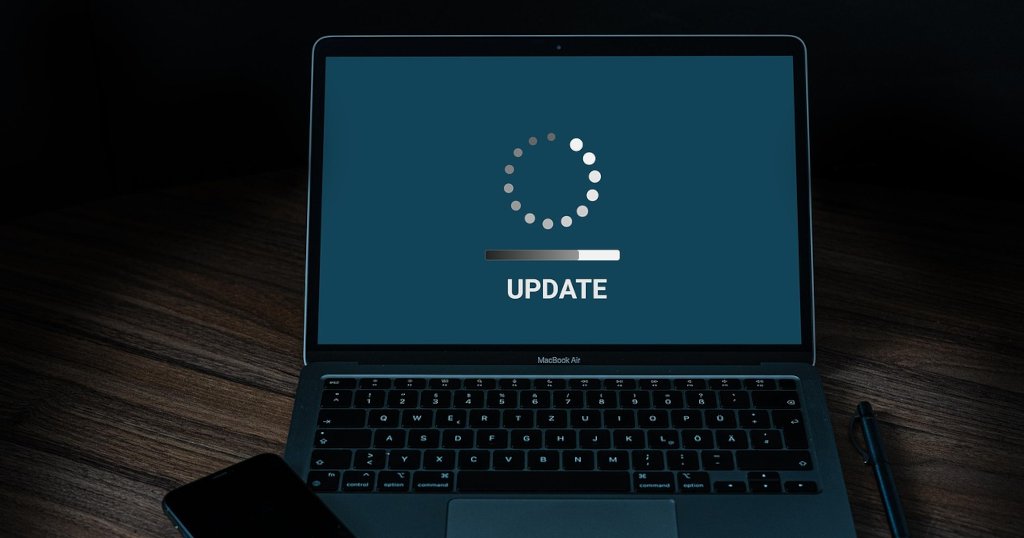8 Reasons Managed WordPress Hosting Is Better
If you’re wondering whether managed WordPress hosting is better than self hosting, here’s some things that might help you make up your mind.

Last Updated: June 3rd, 2023
By: Steve
Contents
If you’re wondering whether managed WordPress hosting is better than self hosting, here’s some things that might help you make up your mind. Before we get into the reasons why managed WordPress hosting is better though, do bear in mind that a lot of it will depend on your individual skillset and budget. But after reading this post you’ll be able to decide for yourself which is best, managed WordPress hosting vs shared hosting.
It’s perhaps important for me to clarify what I mean here by self hosting. For many people, self hosting means that they’re hosting services from their own house using what’s often known as a ‘homelab’. But in the context of this post I also include using a VPS from providers such as Hetzner or VULTR as self-hosting because you’ll have to do pretty much all the manual work of setting it all up just as if it was hosted in your basement.
With that in mind, here’s a list of the best reasons to go for managed WordPress hosting versus self-hosting. We’ll dig into each one further in the article.
- Improved Performance
- Security
- Automated Software Updates
- Automated Backups
- Support from WordPress Experts
- Optimized for WordPress
- Easy Scalability
- Peace of Mind
Improved Performance

Image by Johnny_px from Pixabay
One of the biggest reasons to choose managed WordPress hosting over self hosting is that very often you’ll find you get much better performance than if you try to do it on the cheap. This is particularly true if you’re using a provider like Rocket.Net which we’ve found to be the fastest managed WordPress hosting in our experience.
A) Faster Load Times
This is the most obvious factor that most people think about when we talk about improved performance of WordPress. Faster load times mean happier visitors to your WordPress website, and happier visitors will likely translate into more paying customers for your business. Research shows that an E-Commerce site which loads within 1 second is over twice as likely to result in a conversion compared to one which takes 5 seconds to load (Jeffers, 2019). The likelihood of a conversion is even more significantly reduced for a site that takes 10 seconds to load for business to business websites.
So, if you’re using your website for E-Commerce faster load times are extremely important.
Managed WordPress hosts will use various methods to ensure their servers provide the best load times possible. Improved PHP optimizations and caching, along with multiple servers to spread the load, and multiple points around the globe are expensive things for you to implement if you self-host but due to economies of scale are available when choosing managed hosting.
B) Improved Uptime
When it comes to business on the web, uptime is crucial. Uptime is a measurement of how available a website or service is across a set period of time, expressed as a percentage. Often these measurements will be broken down into a daily, weekly and monthly uptime figure. If the site is always available during those timeframes then the uptime is 100%. Every minute that a site is unavailable per hour results in a 1/60 decrease (or 1.7%) reduction in the uptime value.
Clearly, an unavailable website cannot do business with anyone – so choosing a host with a reliable uptime is vital.
Self hosting your WordPress website can result in lower uptime percentages as you’re more likely to be hosting on a single point of failure – whether that be a smaller network provider or an individual node on a VPS. Managed WordPress hosting on the other hand will almost certainly be using various forms of resilience, high availabilty, load-balancing and failover to get as close to 100% uptime as possible.
C) Increased Reliability
Reliability is a factor of the previous two metrics. A website becomes unreliable if it’s too slow to service the users requests, or if the network or server itself becomes unavailable to respond. If either of these is off the mark then reliability is perceived as poor. And for many customers this becomes a reflection of your business in general.
Part of the reason for this increased reliability also comes down to numbers. If you’re self-hosting or shared-hosting your WordPress website then there’s a reasonable chance that you’re just one person looking after it. With a managed WordPress service there’s multiple engineers looking after different aspects of the system. Some will be a Linux experts, others will be WordPress/PHP experts. While still others will be network and routing experts. And when things go wrong, they’ll immediately be paged, or otherwise summonsed to fix things. Whereas you, on your own, may not be able to immediately jump to fix a slow, or unresponsive website because you may not even be available – such as in the middle of the night while you’re sleeping.
There’s safety in numbers – and managed WordPress hosts will generally have multiple people in support roles to ensure your site stays reliable.
Security

Image by Der_Amateur from Pixabay
When it comes to security, this is a multi-faceted problem which, as a self-hoster or even a shared-hoster can be really difficult to properly keep up to date with. You need to be up to date with the latest WordPress plugin and theme vulnerabilities, up to date with best practice to avoid being a victim of a zero day exploit, be up to date with DDOS mitigation as well as any Linux or Windows (depending on how you’re hosting your own WordPress site) security problems.
We didn’t really discuss the impact that poor security will have on your website’s reliability either – but it can be significant. For instance, many years ago, while I was on holiday overseas actually, I received a notification from Google that my site had been infected with malware. By the time I could log on and find out what was going on, the infection had spread to two other sites too. I had to login and clean up the mess while I was supposed to be on holiday, which is not ideal.
A) Proactive Firewalls
Managed WordPress hosting will come with a preset Website Application Firewall (WAF) specifically designed to mitigate attacks against WordPress and PHP. Other firewalls will also be setup to protect network assets at the hosting providers site so that people can’t (easily) cause network outages or slowdowns. Whilst it’s likely that your host has network firewalls in place to protect their network if you’re self-hosting (unless you really are hosting from your basement, in which case you’ll need to do all that work too), they almost certainly won’t have any web application or indeed any service level firewall in place at all. You’ll need to work that out for yourself.
As the title suggests, a proactive firewall that’s provided by your WordPress managed hosting provider will be constantly updated to reflect the latest threat vectors. This can in itself be a time consuming process – and missing something can come with some significant downsides. As I found out while on holiday…
B) Advanced Security Tools
When you’re hosting your WordPress site yourself you’ll need to make sure that every service running on your servers is protected. This can be SSHD, mail services, other website services or FTP services for example. You can use something like Fail2Ban to help mitigate any attacks of this nature – and working backups will be essential to ensure that you can recover from a major incident if it occurs but the consequences of something evading these basic protections can be significant.
Advanced security tools might well be outside the budget for single operator systems that are self-hosted. Licenses for commercial security systems can be prohibitively expensive on an individual basis – but when the cost of those systems is spread across multiple customers it becomes more affordable.
C) Dedicated Security Team
Even if you have access to the advanced security tools we mentioned above, you’ll still need to know how to use them properly. And you’ll need to make sure you stay up to date on how to use them too which may require online or on-site training to take place on a regular schedule. When you’re using a managed WordPress provider they’ll make sure their staff are up to date and you’ll benefit from their expertise instead of having to take time out for yourself to do it.
A dedicated security team provides another significant additional bonus when things go wrong. If your site or server gets hacked it can be an absolute nightmare trying to work out where they got in, how they did it and how to make sure they can’t do it again. Cleaning up after a significant hack attempt can take days or weeks – with no guarantee you got all of it. But if you’re using managed WordPress hosting the dedicated security team will take on this work for you. And they’ll have contacts they can reach out to easily if something is unfamiliar to them. For you, as an island on your own, it’s going to be a long hard slog.
Automated Software Updates

Image by tomasi from Pixabay
Once again, this is something you can obviously do yourself if you’re self hosting, but it can be tedious and often gets forgotten. Keeping the latest version of WordPress, with the latest themes and plugins is imperative to helping ensure you don’t end up the victim of a malware attack. But keeping them all updated can be a pain in the backside.
This is especially true if you update a theme or plugin and then get the dreaded WordPress ‘white screen of death’. This can result in that all important uptime being reduced while you work out what’s going on. If you’re reasonably proficient with PHP this can be fairly quick – but if you’re not then you’re going to struggle to fix this. And that leads you to not be so keen to update the software next time – rendering you more at risk of security or performance problems.
Automated Backups
WordPress by default comes with no backup solution whatsoever. If you’re using Hetzner or Vultr then you can pay an additional fee to have your server backed up, but this is the whole server that is backed up, as opposed to just your WordPress installation, which may not be what you want. Although you might want both your whole server and WordPress backed up because it can be helpful.
But, there’s the possibility that your website gets hacked but it doesn’t affect the whole server. And you might then be faced with restoring the whole server if that’s your only backup solution but you’ve received e-mails or made system changes on the server itself. This means you’ll not want to lose those things, but you need to restore your WordPress and database files. A dilemma indeed.
But WordPress specific backups are usually provided by all but the cheapest managed WordPress hosting providers as part of the monthly fee and they may offer a lot longer storage duration than Vultr or Hetzner too (who only provide 7 days) so you should be able to get back to a decent state even if it’s been a few days before you’ve noticed a problem.
Of course, there are myriad backup solutions for WordPress available as plugins and if you’re self-hosting then it’s important that you set one up as soon as possible. We use UpdraftPlus on sites that aren’t hosted on Rocket.Net and have excellent results with that. But there’s plenty of others to choose from.
Support from WordPress Experts

Image by kalhh from Pixabay
When you buy a service from a managed WordPress hosting company you know that the people on the support line know WordPress intimately. In many cases they’ll have been WordPress programmers, able to write plugins at the very least and probably plugins or themes too.
They’ll also have intricate knowledge of the WordPress database, and know how to use the database at a much lower level than WordPress itself accesses. They’ll be able to straighten out data anomalies that could confuse your WordPress system and prevent it working properly (it happens). They’ll understand Unix permissions (or Windows if that’s what they’re using to host your site – but you won’t care since they’ll take responsibility for all that).
So, if you want to do something that isn’t working quite right, they’ll be able to help you troubleshoot the issue or they’ll troubleshoot it for you. If you’re self hosting you’re going to need to rely on forums, Quora or Reddit, or other websites (such as this one!) for help. Which, whilst we’re all pretty good, we’re not available 24/7 and we’re not at your beck and call. Your managed WordPress host’s tech support team is though.
Optimized for WordPress
Managed WordPress providers will have made sure that their systems are optimized for serving websites using WordPress. They’ll be on the best performing but safest version of PHP for example. They’ll have caching solutions setup specifically designed to combine the speediest delivery of your web site but coupled with the flexibility of ensuring that if you update a page then the changes are visible immediately (or very soon after). Getting this right can take a lot of trial and error if you’re self hosting (as well as choosing the right plugins to make it work)!
Hardware will be optimized to make querying databases as fast as possible, while minimizing how often that actually needs to happen. There’s a lot involved with optimizing WordPress to perform at its best for your website.
Easy Scalability
If you’re self hosting your WordPress site at home in your basement (or somewhere else) then scaling up your hardware if your website becomes popular or has a surge in visitors due to being showcased in the media or something can be difficult. It can be expensive and take time to scale up dedicated hardware to meet the temporary demand that might occur – and then just as you’ve scaled up, the traffic dries up because it was a temporary blip caused by being mentioned by Oprah for example.
Scaling a VPS system can sometimes involve downtime while you procure and setup a new VPS install and then copy WordPress from one host to another.
With a managed provider though, the ability to scale up or down is usually instant. The host will generally look after all of that manually and optimally so you don’t have to.
Peace of Mind

Image by Michal Jarmoluk from Pixabay
The peace of mind aspect shouldn’t be underestimated. It may cost more in dollars to host your website with a managed WordPress provider but compared to shared WordPress hosting where you’re responsible for managing everything yourself, the ability to sleep at night knowing its all taken care of can be worth more than the savings you’ll make financially.
And of course, downtime has a direct impact financially anyway, so if you’re on a cheaper hosting provider but it’s unreliable then you have that lack of peace of mind, and direct financial implications anyway. So a managed WordPress host is probably the best solution if you’re running a business rather than a hobby site.
Summary
Self, or shared hosting for WordPress is an exciting prospect with many plus sides, but also with many downsides. With a self hosted (i.e. using a VPS from Hetzner or VULTR) solution you can control every aspect of your hosting solution and if you have the skill-set you’ll be able to optimize your system so that it’s faster and more reliable than some managed WordPress hosting solutions, but the resultant stress of keeping on top if it all can come at a cost to your personal life.
Managed WordPress solutions provide you with peace of mind, knowing that your uptime of 99.999% is safe in their hands, as is your website data. Getting hacked can ruin your weekend (and your Google rank) if you’re self hosting and managed hosting can help significantly reduce that risk.
For performance, peace of mind, reliability and security it’s often worth the extra monthly fee to ensure you can sleep easily at night. This is especially true if you’re running a website that directly makes you money through, for example, an E-Commerce site or similar. For serious business, self hosting can really be a false economy.
If you’re wanting the best value for money in managed WordPress hosting, I highly recommend Rocket.Net – their support is spot on, they’re fast and friendly and won’t let you down.
If you’ve found this post helpful please feel free to share it using the buttons below. If you have any questions, comments or feedback we’d love to hear from you by leaving a comment using the form below.
Thanks for reading!
Featured Image by Werner Moser from Pixabay
References
Jeffers, J. (2019). Site Speed is (Still) Impacting Your Conversion Rate. [online] Portent. Available at: https://www.portent.com/blog/analytics/research-site-speed-hurting-everyones-revenue.htm [Accessed 3 Mar. 2023].



